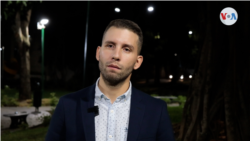Economists estimate that it will take decades for Venezuela to once again experience growth levels similar to those recorded, for example, in 2013, barely a year before the start of the “great recession”.
After almost eight years of free fall, the Venezuelan economy closed 2022 in the green, according to President Nicolás Maduro.
“Venezuela has had a growth in the year 2022 above 15% of the Gross Domestic Product,” said the president during his accountability before the National Assembly, in January.
It is “the highest growth in Latin America and the Caribbean, with the impact of diversifying the economy that we have not had in years,” he continued.
There are still no closing figures from the Central Bank, which averaged growth between January and September 2022 at 17.73% compared to the same period in 2021.
The International Monetary Fund (IMF) projected growth of 6% and ECLAC of 12%.
In any case, it is good news for the government, for everyone in the country, but it is far from the years of prosperity.
From 20 to 30 years of sustained growth
So, can we talk about a true economic recovery in Venezuela?
“It’s actually a revive and a rebound,” he explains to the voice of america the economist Tamara Herrera, director of the consultancy Síntesis Financiera.
“Even having grown, according to our estimates, 14% last year, even so that is absolutely nothing compared to all that has shrunk,” continued Herrera, who indicates that “it needs to grow much more strongly and sustainably.”
For his part, economist Arturo Bárcenas, from the firm Ecoanalítica, points out: “We will need at least 20 or 30 years of sustained growth, that is, several years in which the economy grows more than 10% per year.”
Both agree that for this sustained growth to occur, fundamental reforms are needed and “no adjustments to the economic program.”
“We will need at least 20 or 30 years of sustained growth, that is, several years where the economy grows more than 10% per year.”
“No matter what rate one chooses, that is, it is not chosen arbitrarily, it has to be accompanied by changes in vision, policy, structure, legal space, rescue of a credibility that was destroyed precisely by a propensity to the continuing threat to the private sector,” adds Herrera.
Oil, controls and sanctions
Venezuela’s economic activity began to decline in 2014, amid the collapse of the country’s main source of income: oil.
A model based on threats, regulations and controls also undermined the profitability and productivity of companies in the country. The strong crisis worsened after the imposition of international sanctions in 2019.
“In the last eight years, excluding 2022, we lost 80% of GDP,” continued Marcos Capote, consultant and Master in Finance from the Institute of Higher Administration Studies (IESA). “The economy compared to 10 years ago has regressed a lot.”
And in 2021 the economy began to show signs of improvement. People perceive it above all in the commerce sector: stocked supermarkets, full stores… all in the midst of a change in economic policies. The government eased strict exchange controls, which gave way to informal dollarization, and released prices.
“The fact that the economy has shown growth was mainly due to the fact that oil prices improved, imports improved, there was a chain of expectations and it rode on that wave of more flexible regulations, prices and regulations that facilitated and decriminalization. dollarization,” Herrera continued.
“Then there was that rebound after eight years, practically almost eight years in free fall.”
And that represented for some Venezuelans a slight improvement. “We went from a very bad situation to a bad situation,” Capote summarizes.
mayfly
But the year 2023, they warn, did not start in the best way. The fragility persists and even already shows signs of exhaustion. “Today we are at a significant risk that the 2022 recovery may have been short-lived,” says Herrera.
Cape matches. “Without a doubt the first quarter is not being what was expected.”
So, the great unknown… Will Venezuela be able to maintain, with the current conditions, that level of improvement in a sustained manner?
Barcenas does not hesitate to answer. “No, the answer is no.”
“It will be a year of growth a little less than 2022 (…) I think it will be around 5%, but it is very tied to what is going to happen with Chevron. If the Chevron license is expanded, that growth of around 5%, which is the current consensus, can be increased”, continues Capote.
It is a shrunken economy unable at this time to generate prosperity for the bulk of the population, who live with insufficient wages and low expectations.
Experts agree that it will be very difficult to return to that “Venezuela we lost.”
Connect with the Voice of America! Subscribe to our channel Youtube and activate notifications, or follow us on social networks: Facebook, Twitter and Instagram.







![[Img #74664]](https://thelatestnews.world/wp-content/uploads/2024/12/James-Watson-The-controversial-genius-behind-the-double-helix-150x150.jpg)








